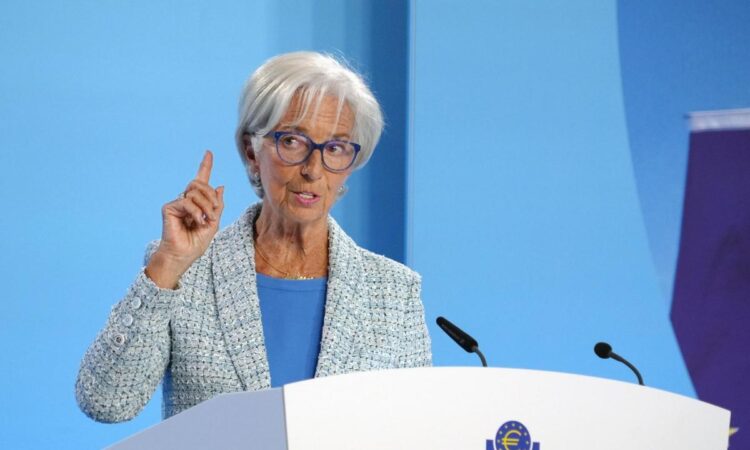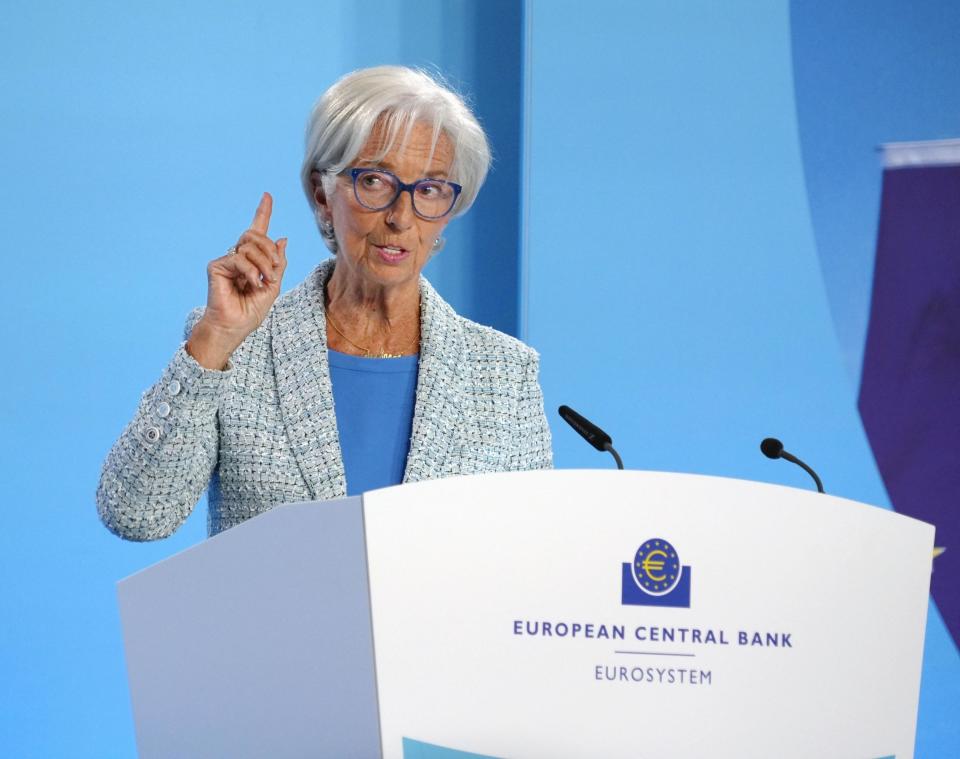

Eurozone inflation slowed slightly last month, falling from 2.6% in May to 2.5%, amid declining energy prices.
Official figures from Eurostat showed that core inflation, which strips out volatile food and energy prices, was unchanged at 2.9%, as services inflation remained stubbornly high at 4.1%.
It had been predicted to fall to 2.8%.
Overall, slowing price rises in the 20 countries that share the euro will provide some relief for the European Central Bank (ECB). Last month the ECB cut interest rates in expectation of inflation hitting its 2% target by next year.
Kyle Chapman, FX markets analyst at Ballinger Group, said: “Beyond a slight cooling in food prices, today’s report is a virtual repeat of the May data, and that’s enough to set in stone a pause at this month’s ECB meeting.
“The stickiness in services inflation may start to become a real concern for policymakers that puts a spanner in the works for rate cuts, particularly given the backdrop of rising wage growth and falling unemployment.”
“The data confirms that it’s not over yet, and a linear downward path for rates is very clearly out of the question. There has been no concrete downtrend in services inflation this year, and the ECB isn’t likely to cut rates significantly until one emerges.”
Read more: Shop price inflation at lowest point since October 2021
Later on Tuesday, Federal Reserve chair Jerome Powell and ECB president Christine Lagarde will speak at the ECB’s forum on central banking at Sintra, Portugal.
The flash estimates on Tuesday had little impact on the euro, with French political uncertainty instead stealing the spotlight from monetary policy.
Watch: How does inflation affect interest rates?
Download the Yahoo Finance app, available for Apple and Android.






